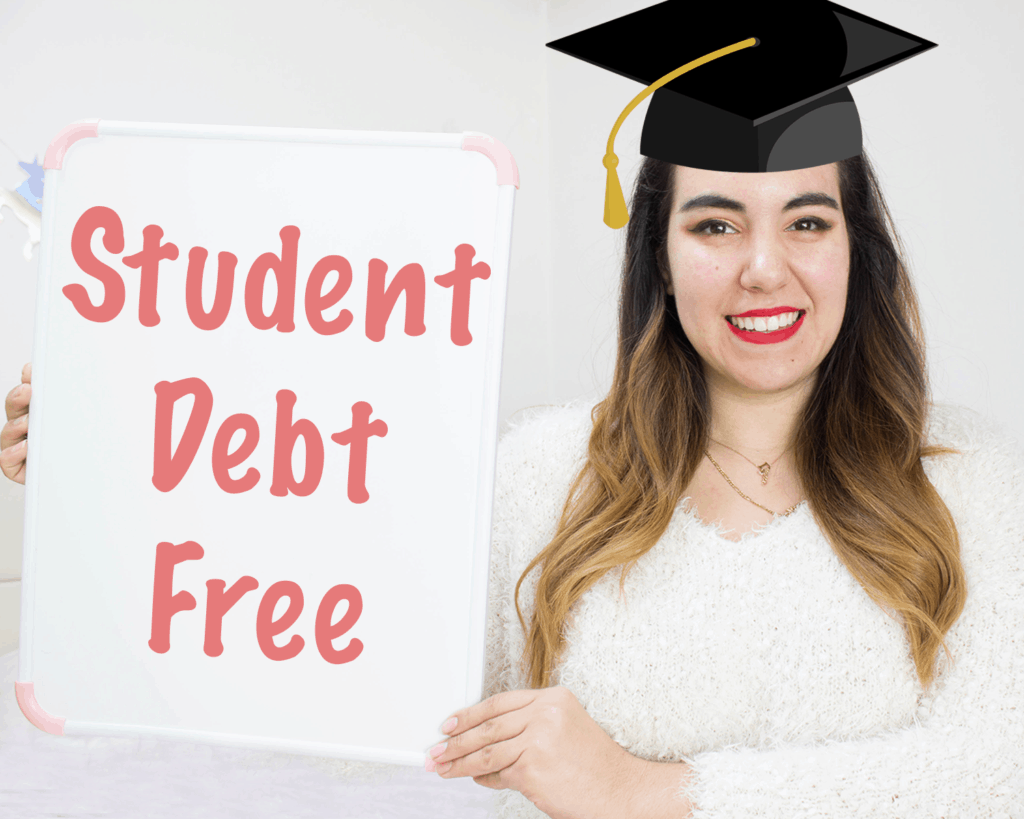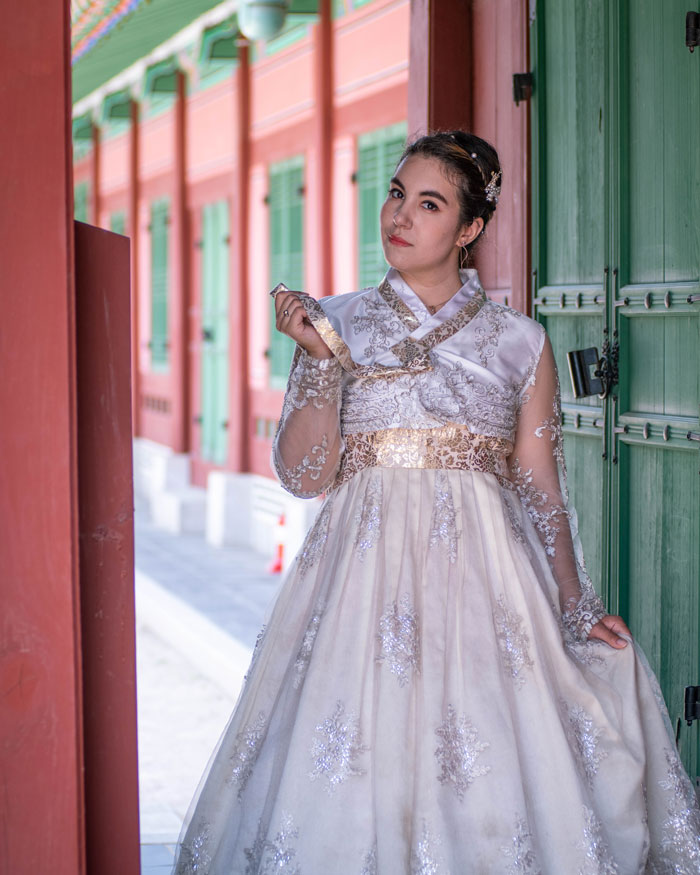I have been student debt free since August 2018.
When I started paying off my loans six months after graduation in 2012, I never thought I would be finished as fast as I was. For me, it felt like a dark cloud always hanging over my head. I began to think, “Was my education really worth it with this huge sum of money I owe?”
Now, It’s been six months since the day I got a special little badge on my student debt profile congratulating me for paying off my student loans. I’m here to tell you, yes, it was worth it. I have no student, mortgage, or auto loans.
I’m not here to brag. Rather, this blog post is designed to give you a little bit of insight into why I chose to teach English overseas, my background, how much I owed and how I paid off my student loans in Korea. I will also give actionable steps to paying off your student loans and money saving tips.
If you’re considering the possibilities of being an English teacher abroad, I’m currently partnered with a TEFL company called International TEFL and TESOL Training Academy (ITTT) and classes start at $199. If you go through my link, you’ll automatically get a 15% off discount!

I started teaching overseas in Okinawa, Japan in 2012. It had always been my dream to live and work in Japan and I was ecstatic to finally be making money. After all, I had been a poor college student up until then.
At that point, I had been scouring the internet reading blog posts about people taking advantage of the high conversion rate of the yen and paying off their student debts very quickly. That was also one of my goals until the yen fell four months after I moved.
Just a word of caution. I don’t recommend moving overseas just to pay off your student loans. I knew people whose sole purpose was that and they were some of the most miserable humans I ever encountered. They hardly went out and had fun and spent the majority of their time at home hating their host country.
Move abroad because you’re looking for a life of adventure while you’re young. Do it because it’s something you want to do and not because you have debts to clear up. That being said, let’s get into the money part because that’s why you’re here, eh?

Table of Contents
I Had A Low Balance
I started paying my student loans in December 2012 and I finished August 2018. I believe this is mostly in part that I didn’t have a huge amount of debt to begin with.
Here on my blog, I’m always committed to complete transparency and I want to be honest about what was going on with my loans.
Compared to most college graduates, I was very lucky to have a grand total of $14,000 in student debt. I had one subsidized loan for $2,000 at a fixed interest rate of 3.5%, and two combined unsubsidized loans for $12,000 at a fixed interest rate of 6.5%.
Over the total life of my loans, with interest included, I paid $17,741.48. (And this doesn’t include the bank transfer fees.)
When I graduated from high school in 2008, my parents had a college fund put away for me. Unlike other students my age, I knew I couldn’t go straight off to university. (I also had three younger siblings my father also needed to put through college.)
I decided to study at my local community college and do my general education classes there for a fraction of the price I would have paid at Illinois State University. Go Redbirds! What! What!
For the first three years, my parents helped pay my tuition, living expenses, and books. I consider myself very blessed my parents thought ahead and helped me as much as they did. If they didn’t I would definitely still be up to my ears drowning in student loans.
Related: JET Program Versus GEPIK

How I Paid off My Debts
Most student borrowers, (myself included) had to make BIG sacrifices in order to pay off debts
I had to put off a lot of things that sometimes made me very miserable. Some of those included: taking vacations or traveling often, owning a pet, eating out, having a car, having a cellphone plan, and not living in my dream city (Seoul).
My first two years in Korea, I had a $30 pay as you go cellphone plan and old iPhone6. I didn’t buy a new phone until July 2018. While in Japan, I owned a car because I needed one, but the cost added up with road tax, gas, and getting a Japanese driver’s license. After moving from Okinawa, I decided not to own a vehicle.
In addition, I couldn’t have a dog until June 2018, all in the name of paying my loans. I also chose to live in the sugar shack my school provided so I didn’t have to live in Seoul with a higher cost of living. Housing in Korea is astronomically expensive with the deposit money and rent on top. As a GEPIK teacher, I had free housing with the catch of living in a low income area. If you’re interested in seeing my Korean apartment, click here.
I got through it by telling myself there were necessary sacrifices to be able pay off my debt. If you’re serious about paying them as well, I highly suggest you do some soul searching and find out which long term goals are most important to you.
Bonus Pay, Severance Pay, & Pension Refund
Severance pay, bonuses, and my pension refund in Japan were a HUGE factor into me paying off my student debt in five years.
Let’s start with my Japan Pension Refund. While I worked in Okinawa from 2012-2015, I was required to pay into the national pension fund. As an American, I was able to get back that money once I left the country.
If you ever lived in Japan, you’ll know everyone takes their sweet time doing everything because of all the paperwork involved. Therefore, five months after, I received my pension in December of 2015. The total amount was $5309.99. I didn’t deprive myself completely because I put $4,000 of that money toward my loans and used the remainder to take an extended two week solo vacation to Thailand in January.
This technically paid me ahead for awhile so the payments I was making every month were just the icing on top of the cake.
Then, after working only a short year at a middle school in Gunpo City from 2015-2016, I had to go. My school lost funding and I didn’t have the option to re-contract. One of the upsides of working in Korea is severance pay. When you finish one job, you’re entitled to an additional month of pay after you finish. According to Article 14 Section 7 in regards to severance pay, the contract reads:
“The employee shall be entitled to severance pay according to the standard formula set out by the Ministry of Labor (equivalent to one month’s salary per annum), open the successful completion of the duties set out here for the entire Term of Employment.”
At that time I received 2.1 million Korean Won ($1874).
One more thing I should note is that there used to be a giant loophole in the old contracts. You used to be able to present a one way ticket outside of the country and you would be reimbursed. I didn’t tell my old school I had a new job so I could collect the money. I’m not proud of taking advantage of the system, but I did what I had to do in order to achieve my goals.
For the flight, I received 1.5 million Korean Won ($1333).
At my school in Hanam City from 2016-2018, I re-contracted twice. Usually, a teacher in Korea gets a pretty nice re-contracting bonus if they sign on for another year at the school. Every time I got a re-contracting bonus, I would always put it toward my student loan. According to Article 11 section 5 of my contract:
“The employer shall provide the employee with a Contract Renewal Bonus of 2,000,000 Korean Won within one month of the beginning of the new Term of Employment…”
That’s 4 million Korean Won ($3567) I didn’t even touch.
The majority of the reason I was able to pay off my student debts was due mostly in part of those large sums of money from my bonuses and paying the set amount of $162.92 every month.

Actionable Steps
I realize everyone has a different situation compared to me. Some people may have less or more student debt than I do. Here, I’m going to give you some actionable steps you can take while living abroad so you can pay your student debts a lot faster or at least take a large chunk out.
Moderate or Get Rid of Expensive Habits and Hobbies
I want you to take a step back and think very carefully about your expensive hobbies and habits. Do you like to collect toy models? Eat at foreign food restaurants? Buy expensive cameras? Are you just basic and addicted to Starbs? What is it you spend the most money on?
For example, I used to love going out to the bar/club and drinking. Most parties in Japan and Korea have karaoke at some point along with eating dinner. If you add up all the eating, drinking, club entrance fees, transport, and clothing fees, I was spending at minimum $100 a weekend. Sometimes even MORE. That’s about $400 a month just to get a raging headache and throw up drunchies from the night before… I decided drinking was stupid, not worth it, and I took out my frustrations at the gym which was a cheaper and better investment for my health.
I’m not saying you need to completely need to give up your hobbies and habits. As an expat, we all need something good in our lives to deal with the shit living in a foreign country throws our way. Just remember everything is always good in moderation and there are times you have to say no.
Budget
One of the biggest ways you don’t get your student loans paid quickly is because you’re living beyond your means. Are you spending too much money every month and getting into the red?
I used to really have this problem. Budgeting was never really one of my strong suits and I loved to spend a lot of money. As soon as I had it, I spent it immediately. It used to make me feel happy and guilty at the same time. Happy because of instant gratification and guilty because I knew I needed to be saving more money and not spending it like water.
If you’re like I used to be, then check out this basic monthly budget worksheet. Budget worksheets really helped me see what was most important. I also use the Pocket Expense app to show me exactly what I was spending the most money on and how much money per day I was spending. There are other great budgeting apps to fit your specific needs as well.
Related: How to Get a Job at an English Village in South Korea

Learn How to Say No
It’s super fun to have a lot of friends. Believe me, I do. But sometimes, you just have to learn when to say no and not go out. I know sometimes there will be music festivals or other events you want to attend.
Just remember you have to prioritize. For me, the hardest thing to do is to say no to sweet snacks and especially cake. Think about the positives that will come if you say no and make peace with that decision.
Getting a Roomate & Cheap Housing
This isn’t always the most ideal situation because it is nice to have your own space. After all, you can leave the door open when you use the toilet or walk around naked if you want.
But goals are goals, my friend, and getting a roommate really helps shave the cost of living down. Get a roommate you know you can stand, set ground rules, and do your best knowing it’s only temporary.
I definitely shot myself in the foot with this one, but for two and a half years while I lived in Japan, I lived alone. My rent was low compared to some English teachers because I lived out in the countryside. Despite this, I was still spending a HUGE chunk of my money to pay rent, utilities, etc.
Since I moved to Korea, I have also lived in the free housing provided to me by my schools through the contract. Even if you don’t like the housing, just take it. Beggars can’t be choosers and you have student loans to pay.
Related: A Complete Guide to Teaching English in South Korea

Pay More Than the Minimum Monthly Payment
Probably the dumbest thing I ever did was not pay a little extra. From 2012-2013, I only paid the minimum and as a result, I had a very high interest rate that year. If you can pay at least $50 extra on top of your minimum payments, you’ll definitely be doing yourself a solid.
Set Up Auto Pay
I don’t know how most loan companies do it, but I’m sure every company has an option to take a set amount out of your checking account on a specific day. Doing this is also so good for your credit. It shows credit card companies that you pay on time.
It’s also good for the future when you decide to return to your home country and you have a record of payments made on time. It’ll be easier to apply for another student loan for even higher education, a car loan, or home loan if that’s the next step in your life.
Make Lump Sum Payment With Extra Cash
For me, this method was the most successful. As you know, every time I had extra cash from my bonuses, severance pay, or pension refund, I just pretended I didn’t have the money and it went straight into my loans. This lump sum helped keep my interest very low and pay them off faster.

In Conclusion
Do I regret these sacrifices I made? Yes and no.
At first, I really hated having to give up things I loved or wanted to do or have a normal life because of my loans. Unfortunately, I harbored really negative feelings of jealousy towards my friends who had no student debt because they were free to save and travel as much as they liked… Two things I really wanted to do but couldn’t.
I also hated all the bloggers who bragged about how they save 20K while teaching English in Japan or Korea. Then they go around and tell everyone they can too. By the time you get to the end of their article, spoiler alert, they had no student debt and their advice was completely irrelevant to me (and most likely the majority of their readers who also had student debt). I probably would have had all those savings and more if I were in their shoes too.
Throughout those five years, I couldn’t have a dog or a phone plan and I couldn’t eat all the delicious food I wanted to eat. I’m not gonna lie. I hated every moment of it because my government believes putting young people in debt is the way to go. I kept holding on to the notion that once I got to my goal, I would see the light.
In the end, it WAS worth it.
Without my college degree I wouldn’t have been able to go to Japan, my biggest dream since I was 12 years old. I wouldn’t have easily gotten a job at a middle school in South Korea without it. I wouldn’t be able to teach English online as a side hustle if I didn’t have a piece of paper that says I’m good at English.
In addition, I’m part of a very small group of Americans who have no debts at all.
Having student debt taught me how to budget, say no to things I really don’t need, and prioritize what matters most in life. I’m now free to pursue all the traveling I want while being able to save for my future. When I return to the States in 2020, I will have a very nice nest egg and dreams I will be able to accomplish.
Just remember, there is a light at the end of the tunnel. Think about your long term goals and what you’ll be able to have once all your income belongs to you and only you.


This blog post contains affiliate links. If you choose to purchase through me, at no additional cost to you, I make a small commission to help continue running Gina Bear’s Blog.

Free Seoul E-Book
Do you love South Korea?
Enter your name and email address and click the button below to receive your Easy Seoul Travel Guide so you can travel like a local!








1 Comment on How I Paid Off My Student Loans in Korea